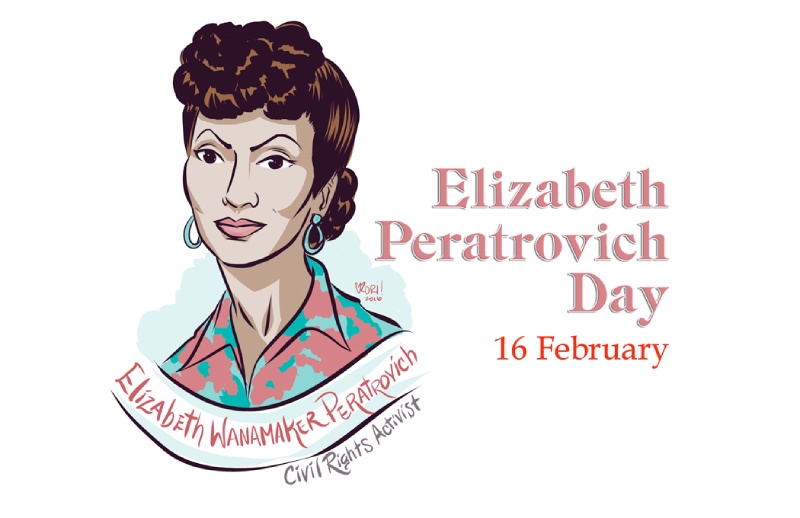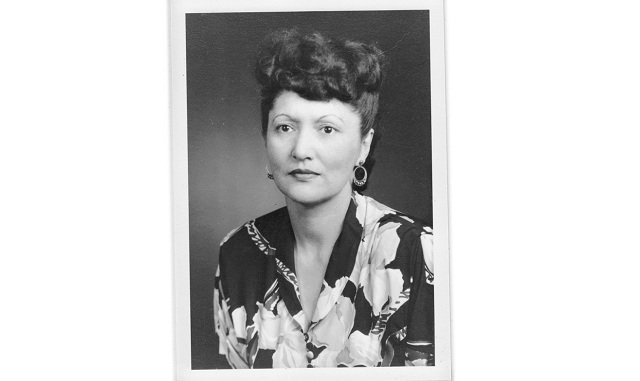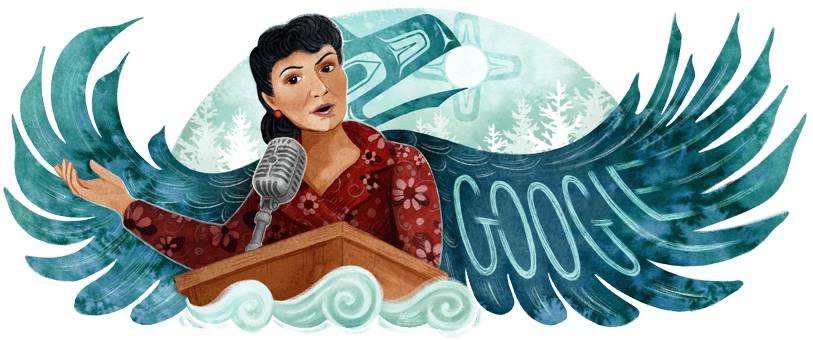News
Elizabeth Peratrovich Day: History and Significance of the Day

On February 16, celebrate Elizabeth Peratrovich Day, in honor of the American activist who helped usher in a new era in racial relations in Alaska. Throughout her life, she battled for Native Alaskans’ equal rights; as a result, every year on February 16, Alaskans gather to honor this legend. Although this is not a federal holiday in the United States, several establishments, shops, and institutions in Alaska close on this day.
Elizabeth Wanamaker Peratrovich (1911–1958) is honored by Alaskans on February 16 of each year “for her courageous, unceasing efforts to eliminate discrimination and bring about equal rights in Alaska”.
February 16 is Elizabeth Peratrovich Day in Alaska. Elizabeth Peratrovich, also known as Tlingit, Yéil (Raven), and L’ukaax.ádi (Sockeye), was a powerful figure in the civil rights movement for Alaska Natives. She valiantly spearheaded the organization and advocacy for Alaska’s 1945 Anti-Discrimination Act, the country’s first anti-discrimination law that put an end to legal discrimination against Alaska Natives.
Elizabeth Peratrovich Day: History and Significance
Peratrovich, who is an Alaska Native belonging to the Lukaax̱ clan of the Tlingit nation (also spelled Tlinkit), experienced prejudice at a very young age. Her career as an activist began with these seeds.
In 1933, she married fellow activist Roy Peratrovich, and eight years later, the family relocated to Juneau, Alaska, where she had better access to legislators who could assist them in bringing about changes in their community. There, the couple encountered the same prejudice and, because of their racial identity, was even denied housing when they attempted to purchase one. In December of the year they relocated, the couple noticed an inn’s door bearing the sign “No Natives Allowed.” This infuriated them, and they demanded action. They claimed in a letter to Alaskan Governor Ernest H. Gruening that Native boys were fighting side by side with white boys in World War II to defend the freedoms enjoyed by the latter.
Peratrovich’s campaign to pass an anti-discrimination bill was started by this letter. She pushed the bill to the House in 1943 with Governor Gruening’s support, but it was defeated in a tie vote. But Peratrovich was not to be deterred, and she and her husband toured Alaska while calling on the Native Americans to take up arms.
Years of work later, in 1945, the Alaska Senate was presented with a second anti-discrimination bill. Peratrovich responded to his opponent’s question about who these “barely out of savagery” people were and why they wanted to associate with people who had years of civilization behind them clearly and concisely. “I would not have expected that I, who am barely out of savagery, would have to remind the gentlemen with 5,000 years of recorded civilization behind them of our Bill of Rights,” she said as she took the floor.
She further stated that this bill would demonstrate the intention to address and formally acknowledge the issue of racial discrimination. Statewide, her impassioned plea was greeted with booming applause and overwhelming support. Most importantly, the groundbreaking Anti-Discrimination Act of 1945 was enacted.
At the age of 47, she carried on working until the day of her death. In Juneau’s Evergreen Cemetery, she was laid to rest next to her spouse under the shelter of a Sitka spruce. This gravesite is open for visitors to pay their respects on this day every year thanks to a groundskeeper.
Governor Steve Cowper of Alaska declared April 21st, 1988, Elizabeth Peratrovich Day in her honor for her contributions to racial equality in the state. The celebration was subsequently rescheduled for February 16 to commemorate the day the Anti-Discrimination Act was approved.
On July 4, 1911, Elizabeth Peratrovich was born in Petersburg, Alaska. Her people, the Tlingit nation (also spelled Tlinkit), are indigenous to the Pacific Northwest Coast of North America. She belonged to the Lukaax̱.ádi clan. Elizabeth Wanamaker was given the name Elizabeth Wanamaker when she was very young and adopted by Andrew and Mary Wanamaker, a Tlingit couple.
She married Roy Peratrovich (1908–1989) in 1931, and the two of them fought for civil rights and against widespread discrimination against Alaska Natives for the rest of their lives.
She famously reacted to a senator’s disparaging remarks during her testimony before the territorial Senate voted on the Anti-Discrimination Act by saying, “I would not have expected that I, who am barely out of savagery, would have to remind gentlemen with 5,000 years of recorded civilization behind them, of our Bill of Rights.”
Almost two decades before the US Congress enacted the Civil Rights Act of 1964, Peratrovich’s work and testimony are credited with making sure the law passed.
The Alaska Legislature declared February 16 to be Elizabeth Peratrovich Day on February 6, 1988. Because it was the day the Anti-Discrimination Act was signed in 1945, February 16 was selected.
Every year on this day, Alaskans revisit her works and pay respects to her grave. She is revered in the minds of all, and there are parks and public monuments named in her honor.
Is Elizabeth Peratrovich Day a Public Holiday?
Not every day is a public holiday. While businesses, schools, and government and public offices are open on this day, they may host outreach initiatives and special events in honor of the annual observance.
What Do People Do?
Elizabeth Peratrovich is widely regarded as the public face of Alaska Native civil rights. She was a major force behind the passage of the Anti-Discrimination Act of 1945 in the territory, the nation’s first anti-discrimination legislation.
Alaskans celebrate her life on February 16 with parties and visits to her gravesite, where she is buried next to her husband, Roy Peratrovich.
The Elizabeth Peratrovich Award, the Peratrovich Gallery in the Alaska House of Representatives, and a theater in Ketchikan’s Southeast Alaska Discovery Center are just a few of the monuments, awards, and buildings bearing Peratrovich’s name. Her husband and she have a park named for them in downtown Anchorage.
-
Health3 weeks ago
Back to Roots: Ayurveda Offers Natural Cure for Common Hair Woes
-

 Tech3 weeks ago
Tech3 weeks agoFrom Soil to Silicon: The Rise of Agriculture AI and Drone Innovations in 2025
-

 Science7 days ago
Science7 days agoJuly Full Moon 2025: Everything You Should Need to Know, When and Where to See Buck Moon
-

 Sports3 weeks ago
Sports3 weeks agoFIBA 3×3 World Cup 2025: Full Schedule, Preview, and How to Watch
-

 Gadget4 weeks ago
Gadget4 weeks agoThings to Know about Samsung Galaxy S26: What’s New and What’s Next
-

 Tech4 weeks ago
Tech4 weeks agoAdobe Firefly App Now Available on iOS and Android Phones to Create AI Images and Videos Anywhere
-

 Sports2 weeks ago
Sports2 weeks agoPrefontaine Classic 2025: Full Schedule, Preview, Field, Events and How to Watch Diamond League Eugene Live
-

 Festivals & Events3 weeks ago
Festivals & Events3 weeks agoEverything You Should Need to Know about Summer Solstice 2025















